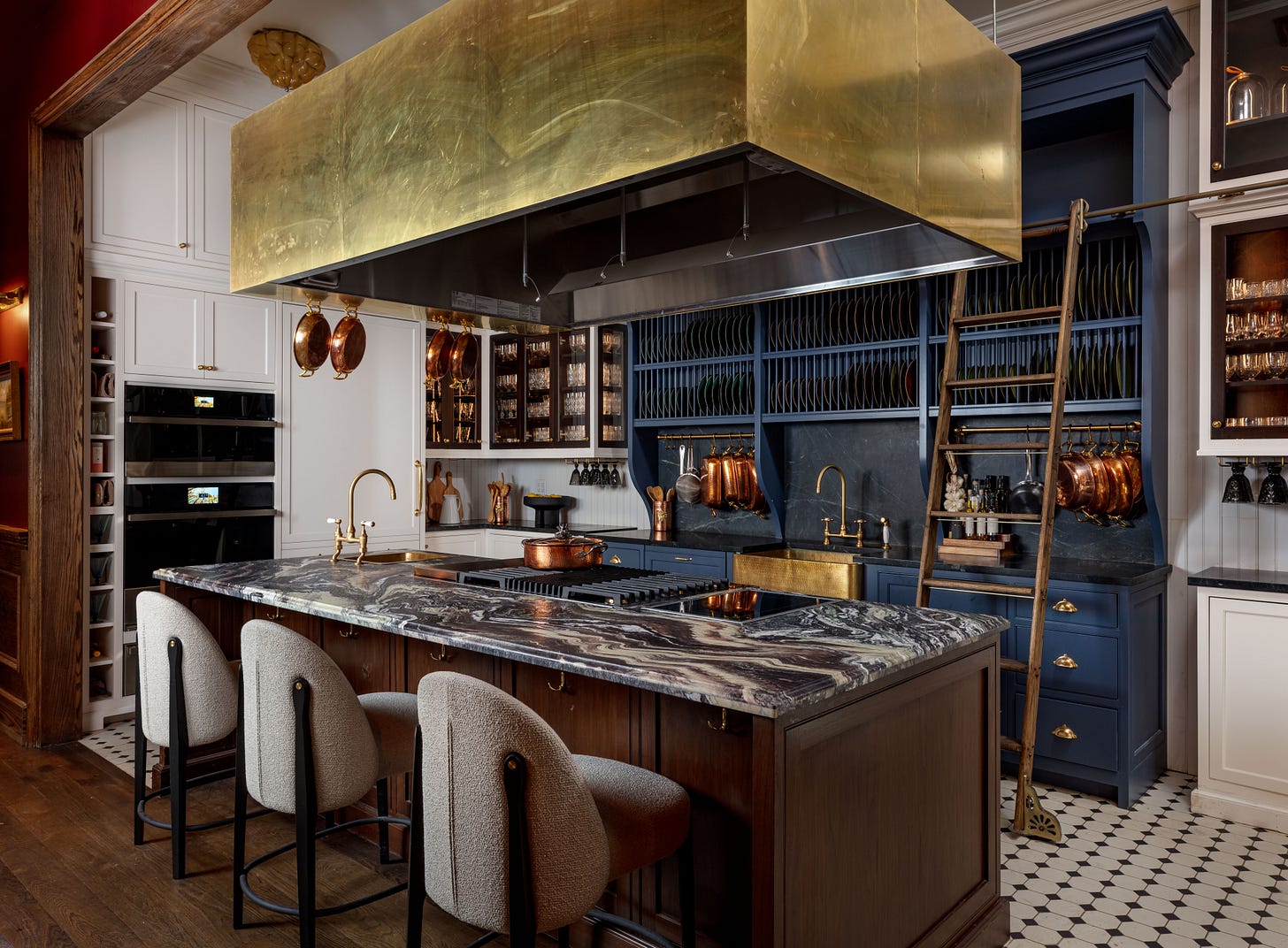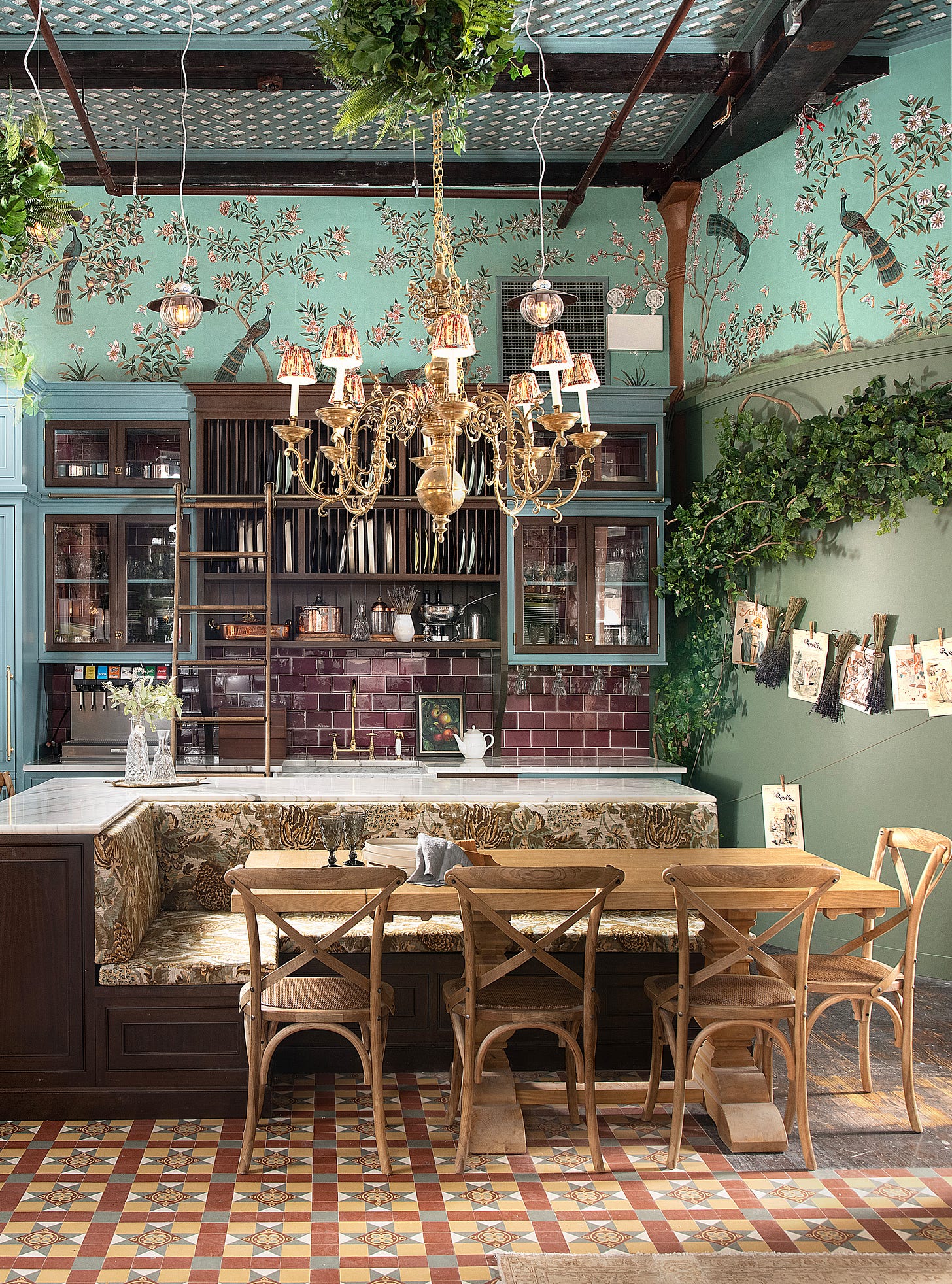Maxwell Tribeca -- A City Social Campus
A club that competes on personalities, not amenities.
After 13 months of construction and 3+ years from idea to implementation, Maxwell Tribeca is finally open!
Our launch has been accompanied by some amazing press — The New Yorker called us a Harvard Final’s Club in the city while the New York Post, never one to pass on an opportunity to snark, said you pay $12,000 to drink your own booze. Our design and concept was covered by Elle Decor and Town and Country, Moda Operandi is selling a Scotch and Steak night experience in the space, and amazing brands are already lining up to book private events!
But if you’ve followed our journey up to this point you’ll hopefully understand it’s not about the design of the space, “a place to drink your own booze,” or parties — it’s about creating a modern version of a city social campus.
We touched on this a bit in There Is No Us Without A Them, but our city used to be littered with campuses. These were your Churches, Synagogues & Mosques, your Rotarians, Kiwanis, Elks, Moose & American Legion, or your Italian American Clubs, Romanian Men’s Associations or Polish American Associations.
They were the places you went to hang out with “your people.”
As we elaborated, most have faded in relevance because they were racist and sexist — “your people” was defined by if you were a Romanian man, and as society has evolved these clubs have mostly been relegated to 80-year-olds playing parcheesi outside of a decrepit banquet hall in deep Brooklyn.
But while the organizing principals of these spots were messed up, the operating principals were actually pretty sound — they had rituals (Shabbat dinners, yearly ethnic festivals, fundraisers), they forced participation (YOU taught Sunday school), and you joined because of the people — you didn’t go to any of these spots because of the cocktail menu or the filet mignon.
The only mainstream version of a campus these days is college — a rigorous college admissions process vets on their version of “our people,” homecoming, welcome week and annual parties are your rituals and campus life is driven by student participation.
Maxwell is a Modern City Social Campus
Which is why titles like the NYPost’s completely miss the point — it’d be like saying “Come to Harvard and pay $40,000 for a cramped dormitory, eat lukewarm dining hall food and open your own PBRs.”
We understand that the value of Harvard isn’t the services, or even the education, but the people, and the structure the campus and admissions process has set up around it for you to make lifelong friends, and importantly, maintain those relationships.
Phase 1 of our campus is complete — we started with building a space optimized around participation instead of services, with our grand kitchen, a place where members can cook, at the core.
But everything at Maxwell is built for participation, from the soda fountain machines we put in two of the three kitchens . . .
To the kitchen islands and entertaining dinner nooks . . .
To the liquor lockers for you to store your own alcohol . . .
And while the space includes custom hand-painted wallpaper from Gracie, custom upholstered furniture from Arhaus and luxury JennAir stoves, those are simply nice-to-haves — Phase 1 was the physical real estate, construction and design, and now we’re getting started on the hard part — building the community, rituals and membership.
A Place For Us
The most important obligation we have is curating the people, and while I won’t share details as it’s always a work in progress, our membership process mandates multiple team members or members meet every prospective member and requires attendance at events.
The question we often ask ourselves internally is “do we want to see this person every weekend,” and our best answer when it comes to the type of person we do want to see is is “serious people who don’t take themselves seriously.” We want a balanced ethnic, gender, profession, age and LGBTQI+ club, but we have a strong theory of the types of people we enjoy spending our time with and that permeates the membership.
Most clubs sidestep this responsibility, aiming to create more of a scene than a community, filtering on surface level characteristics — one well known one apparently has an internal guideline of “European Men and Models.”
But as we’ve started developing our rituals, it has become evident just how important that there is a cohesive “us” is — every Friday and Saturday members are cooking in the kitchen together, making pizza and pasta and pouring wine at the kitchen island. We’re setting up a programming line-up full of cover bands and dinner parties that turn into dance parties.
Our mission is to create a spot where you feel that sense of familiarity and home when you walk in the room, a spot where you know you are going to run into friends you’ve been trying to catch up with but also meet new amazing people you didn’t know you wanted in your life.
That requires us to be as vigilant about membership as you are with your own group of friends.
In one way what we’re doing is radical and new, but in another way it’s completely derivative — we’ve gathered like this for centuries and we’re simply refreshing the model, it’s only our current iteration of “private clubs” that have seem to have lost the plot, competing on amenities instead of personalities.
If you’d like to come check it out, we’ve announced a few public open houses here — we’d love to meet you.
Cheers,
David, Kyle, Joelle & Tom







